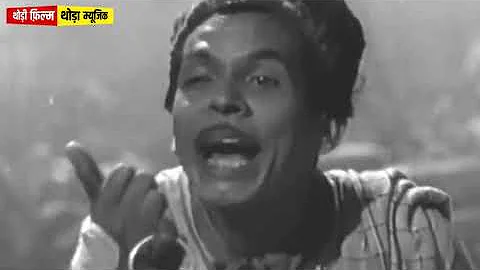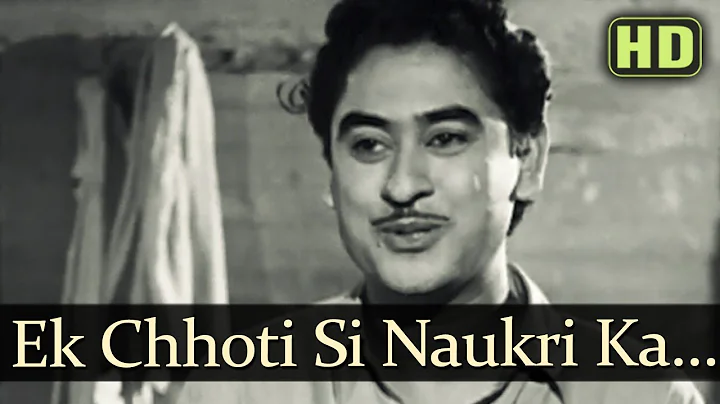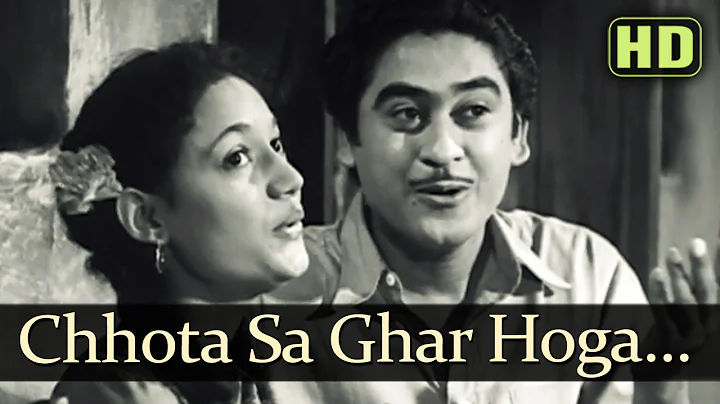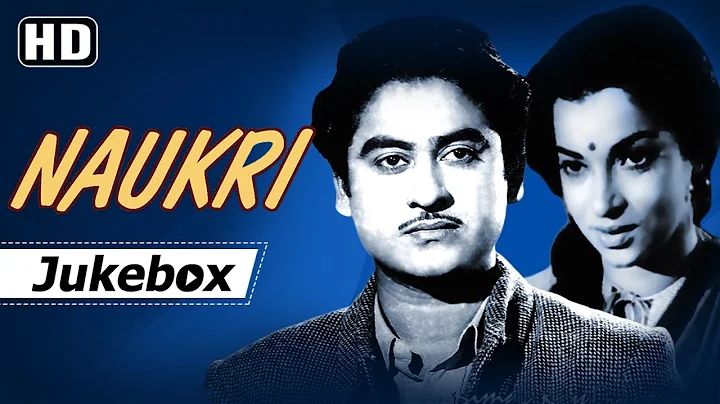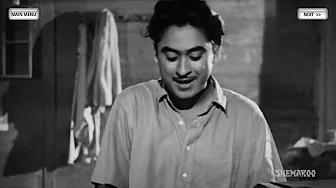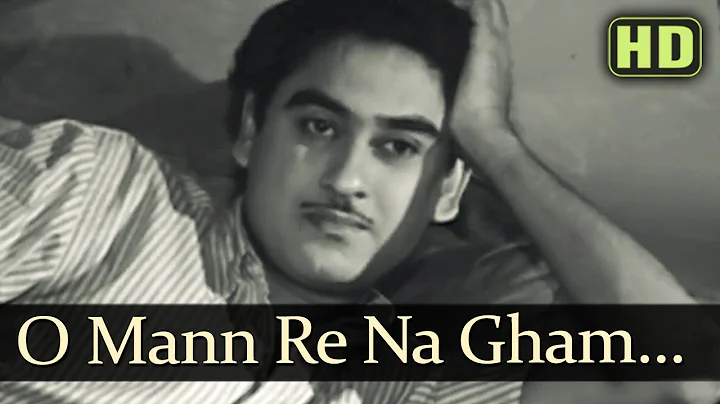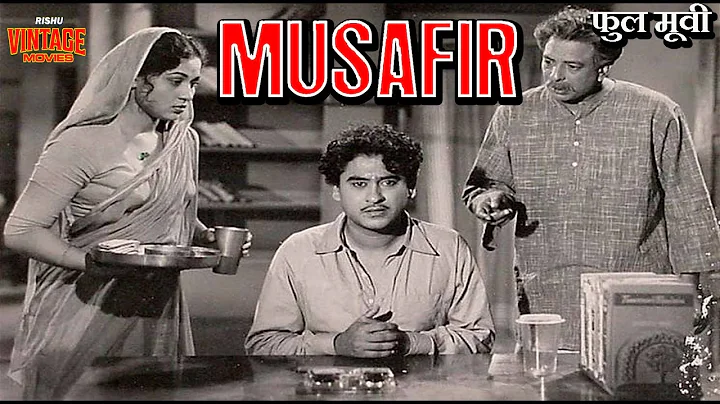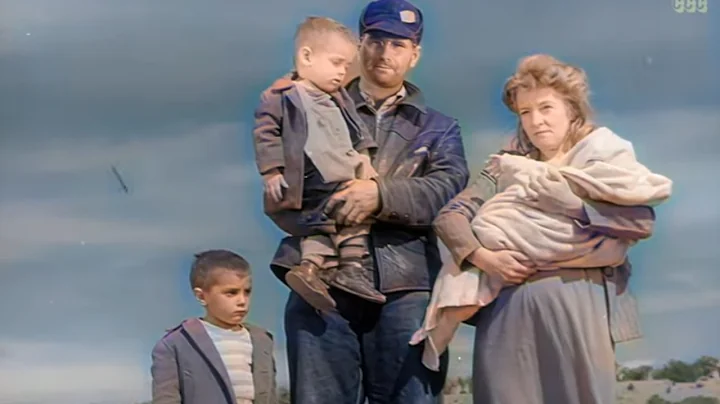....................................................................................................................

her future husband Johnny walker sang for a Bangla .https://youtu.be/PXfPnM3oKNk?si=sirB_pmLk_f5ipCz.In real life they had a 'bangla' in Bandra Mumbai named NOOR MANZIL where they stayed for a long time before shifting to Lokhandwala area Mumbai Andheri
Noor and Johnny walker together in film Aar Paar
Movie: Aar Paar (1954) Singer: Geeta Dutt, Mohd.Rafi Lyricist: Majrooh Sultanpuri Music Director: O.P.Nayyar Director: Guru Dutt
Movie: Aar Paar (1954) Singer: Geeta Dutt, Mohd.Rafi Lyricist: Majrooh Sultanpuri Music Director: O.P.Nayyar Director: Guru Dutt
Johnny walker and Geeta Bali WANTS A BUNGALOW=BANGALA
Singers: Asha Bhosle, Mohammed Rafi Music Director: Roshan Lyricists: Prem Dhawan Album: Aji Bas Shukriya Actor : Geeta Bali, Suresh, Johnny Walker, Kamal Mehra, Shammi, Gulab, Amrit Rana, Kamal Mohan
WHILE KISHORE KUMAR AND NOOR WANTS A SMALL PLACE TO STAY
Chhota Sa Ghar Hoga
Performers: Kishore Kumar, Noor
Singers: Kishore Kumar, Shaila Belle
Music: Salil Chowdhary
Lyrics: Shailendra
Director: Bimal Roy
Film: Naukri - 1954
After marriage Johnny and Noor bought a bungalow in Bandra and stayed for many years before shifting to Lokhandwala complex in Andheri Mumbai
Singers: Asha Bhosle, Mohammed Rafi Music Director: Roshan Lyricists: Prem Dhawan Album: Aji Bas Shukriya Actor : Geeta Bali, Suresh, Johnny Walker, Kamal Mehra, Shammi, Gulab, Amrit Rana, Kamal Mohan
Marne ke pehle hisaab kar do: Johnny Walker - Rediff.com Movies
Jul 30, 2003 - The legendary comedian Johnny Walker had become rather ... A few years ago, he sold his bungalow in Bandra and moved to Lokhandwala.
=================================================================================

Jul 21, 2012 - This is Noor, the beautiful Mrs Johnny Walker. ... posts for Johnny Walker week, on Dusted Off), and in a departure from my usual reticence, ==========================================================
Upperstall Review
In Bimal Roy's films we see a romantic idealist to whom any form of exploitation - social, religious or economic was unacceptable. If Do Bigha Zamin (1953) looked at the heart-rending plight of a farmer displaced from his land and Sujata (1959) touchingly looked at the plight of an untouchable girl, one film that sensitively looked at the dreams and aspirations of the educated youth getting shattered as they struggled in the urban jungle for employment wasNaukri. Naukri sees Bimal Roy tackle yet another social problem in his usual impeccable and heartfelt manner. The film in a sense continues from where Do Bigha Zamin left off particularly in the sequences as we see Rattan in the city. Many of the same locations of Calcutta that Bimalda used in Do Bigha Zamin are repeated in Naukri and Jagdeep even makes a cameo as Lalu Ustad reprising his role in the earlier film.
Noor – Mrs. Johnny Walker | Dustedoff
madhulikaliddle.com/2012/07/21/noor-mrs-johnny-walker/
Upperstall Review
In Bimal Roy's films we see a romantic idealist to whom any form of exploitation - social, religious or economic was unacceptable. If Do Bigha Zamin (1953) looked at the heart-rending plight of a farmer displaced from his land and Sujata (1959) touchingly looked at the plight of an untouchable girl, one film that sensitively looked at the dreams and aspirations of the educated youth getting shattered as they struggled in the urban jungle for employment wasNaukri. Naukri sees Bimal Roy tackle yet another social problem in his usual impeccable and heartfelt manner. The film in a sense continues from where Do Bigha Zamin left off particularly in the sequences as we see Rattan in the city. Many of the same locations of Calcutta that Bimalda used in Do Bigha Zamin are repeated in Naukri and Jagdeep even makes a cameo as Lalu Ustad reprising his role in the earlier film.
Naukri is one of the earliest films where Kishore Kumar first gained prominence. Since his madcap comic persona had not yet developed totally and considering he was working with a director like Bimalda, Naukri sees an extremely sincere, sensitive and restrained performance from him. Kishore Kumar is totally at home be it the more serious scenes in the film or even in the comic scenes. The comic scenes however are not the typical slapstick Kishore scenes but lighthearted and gentle like most Bimal Roy scenes and bring a smile to one's lips rather than uproarious laughter. The germs are obviously there for Kishore's developing personality as a madcap comedian. The scene where he sings out his dialogue is something he often did in real life himself!
Bimal Roy was one filmmaker who traveled deeply inside the mind of the woman and created memorable characters be it the title role in Sujata or Kalyani in Bandini (1963). However withNaukri being an out and out Kishore Kumar film the heroine's role is not that well sketched out as it could have been and Sheila Ramani is admittedly a bit weak in her performance. But then she was naturally a glamourous star who acted as the vamp in Taxi Driver (1954) and was Dev Anand's heroine in Funtoosh (1956) and doesn't really look the simple girl next door. But then Bimal Roy was known to cast actors against their set image and often successfully. Even earlier in Do Bigha Zamin, he cast a westernised Balraj Sahni as the peasant Shambhu and Nirupa Roy, known for mythological films, as his wife. In Baap Beti (1954), he cast the swashbuckling hero Ranjan in an emotional role as the father and in Parakh (1960), he cast Sadhana as a simple village girl soon after she wowed the country with her glamour act in Love In Simla (1960). To her credit Sheila Ramani does try hard but...
In the supporting cast, special mention must be made of Kanhaiyalal. Generally cast as a slimy 'seth' or moneylender or a crooked pundit, he makes the most of his positive role as the servant in the lodge Hari who tries to help out Rattan any which way he can, be it lying to the men from whom Rattan has hired a typewriter to type out his application by telling them he isn't there or even helping him out financially. And it is interesting to see Mehmood in an early bit part as a small time pickpocket in Bombay.
Naukri is full of Bimal Roy's expert little touches as he perfectly captures the desperation of the Indian youth wanting to earn a respectable livelihood for their families and themselves. In a memorable sequence (albeit inspired from The Good Earth (1937)), Rattan, on finding out that a man has committed suicide and overhearing that he worked in a particular office, goes running over there as if his life depended on it because he now believes a vacancy is there...only to be told that the man killed himself because he was fired...
Bimal Roy was a master of the use of irony in his films. In Do Bigha Zamin, Shambu stands outside his land and is not allowed to take even mud from there, in Bandini, when everything was going wrong he cut to images of the sentry saying Sab Theek Hai. Similarly in Naukri, you cannot help but cry silently with Rattan when he receives the news of his sister's death along with a letter from a sanitarium telling him there is a vacancy and she can now be admitted there. And as Bimal Roy was a realistic filmmaker whose films mirror the very images of life even as he tackled social issues close to his heart, his stories by and large stuck to realistic endings. In Do Bigha Zamin, Shambhu is unable to retrieve his land, In Bandini, Kalyani chooses a life of hardship with Bikas Babu rather then with the doctor. Similarly, Naukri too ends with Seema and Rattan deciding to face life together rather than a all is well kind of happy ending. What life has in store for them - is left to the viewer's imagination.
The music of Naukri is more situational rather than populist but one song Naukri is best remembered for and did become extremely popular was the optimistic Chhota sa Ghar Hoga. The other songs of the film include Jhoome ri Kali wherein Seema feels the first flush of love, a song rendered perfectly in her unique manner by Geeta Dutt, Ek Chhoti si Naukri ka Talapdar Hoon Main, the sad O Man Re and Arzi Humari Marzi Humari. The last mentioned deserves special mention for its writing as well as picturisation. The song is beautifully double layered as Rattan talks about his job applications as well as gets his feelings across to Seema through the song. The music aside, special mention must be made of the song picturisations. The songs are picturised very simply in the smallest of locations like the lodge or Seema in her room and have a far greater impact as they go with the film's story. Perhaps our filmmakers and choreographersof today could learn a thing or two as all they can think of is running off to some exotic location with 200 dancers doing PT steps!
On the technical side, the film is greatly enhanced by Kamal Bose's simple yet evocative camerawork, Sudhendu Roy's art direction and Hrishikesh Mukherjee's fine editing.
Naukri, released in 1954, looks at a very real problem that exists in our country even now - that of umemployment . However whenever one goes through Bimalda's filmography or even discusses his social films Naukri is hardly ever mentioned with Do Bigha Zamin, Sujata andBandini taking center stage, which is a real pity because Naukri is a film of considerable merit by itself.
========================================================================
=============================================================
RELATED:-
one year after release of popular film Baarish ;the dance sequence of johnny walker @Aji BasSukriya was shot ,can see Baarish poster in the dance at 2.45
film (Naukri)(1978) Indian films and posters from 1930..no blog yet
film (Naukri)(1954)
| Naukari | Bimal Roy | Kishore Kumar, Sheila Ramani, Moni Chatterjee, Kanhaiyalal, Noor, Achala Sachdev, Bikram Kapoor, Samson, Krishnakant, Iftekhar, Jagdeep, Mehmood, Sailen Bose | Social | Music: Salil Choudhry Lyrics: Shailendra |
98% liked this film
Google users
Description
Naukri was a 1954 Bollywood film directed by Bimal Roy for Bimal Roy Productions. The lead actors were Kishore Kumar and Sheila Ramani. Wikipedia
Initial release: 1954
Audience reviews
NEW
Posting publicly.
What do you think about this movie?
BE THE FIRST TO REVIEW
Help other viewers of this page
Web results
Apr 22, 2017 - But then there are films like New Delhi and Naukri, where there isn't a concerted effort to make Kishore's a comic character. Films about young ...
. Films about young men who are like most other young men: trying to go from being boys to men, facing trials and tribulations, trying to laugh through them when they can, caving in occasionally. Not heroes, not comedians, just normal men.
Naukri is about one such man. Ratan Kumar Choudhury (Kishore) lives in a village in Bengal with his younger sister Uma (Noor, more familiar to most people as Mrs Johnny Walker) and their mother (Achla Sachdev). When the film opens, everything seems sweet and cheerful: Uma, with a little basket of flowers in her hand, is posing outside their home, while Ratan holds a camera, trying to get a good photograph of her. It’s only when Ratan topples over accidentally and Uma starts laughing, that we realize something is wrong—because her laugh swiftly turns into a cough, which brings both Ratan and their mother hurrying towards Uma.
It turns out that Uma suffers from TB. The family, however, are not daunted by this; Ratan has, thanks to careful economizing by his mother, been able to study. He has recently given his BA exams and is waiting for the results. A friend in Calcutta has been asked to let Ratan know once the results are declared. Ratan is quite sure he will have done well. And once he’s a graduate, getting a good job will be a cakewalk. Then they’ll have everything they could want or need: a good house to live in, a sanatorium where Uma will get treated… Oh, everything.
There is much excitement and joy, therefore, when the expected message arrives. The results are out, and Ratan has passed—with a distinction, too [how odd. No first class first?]. As planned, he immediately prepares to go off to Calcutta and begin job-hunting. Unknown to him, his mother goes to the local jeweller and sells off whatever little third-rate gold she still possesses. She gets very little money for it, but whatever she gets, she presses into Ratan’s hand as he is about to climb into the tonga to go to the railway station. Ratan will need it, going as he is so far away.
(It’s interesting here to note that Ratan, though he does not know that his mother has been to the jeweller, has the emotional intelligence and the sensitivity to realize that even this meagre amount has cost his mother something. He accepts it with gratitude, but without a sense of entitlement).
In Calcutta, Ratan makes his way to Ananda Boarding, a boarding house occupied entirely by men. The manager (Moni Chatterjee) is inclined to show Ratan the door—he’s had enough of unemployed young men who can’t pay their rent on time. Ratan, however, is both persuasive as well as confident: he is a BA, after all; and his father’s old friend and colleague has promised to get him a job in the company where he works. Within a couple of days, Ratan will have a job.
Still, the manager instructs the servant, Hari (Kanhaiyalal, in an endearing role) to show Ratan to the Bekar Block and give him the single room there. The Bekar Block is the block occupied by the bekaar (unemployed) of the boarding house: three men (of whom one is played by a young and handsome Iftekhar) who share a room. They haven’t been able to find jobs for the past year, even though they try hard.
Ratan, because of his prospects, as well as the advance rent he’s been able to pay up, gets a room all to himself. This is divided from the adjoining room by a thin wall that doesn’t quite reach the ceiling, so there’s little privacy, but this doesn’t matter to any of these men. They are soon good friends, and they welcome Ratan into their midst.
The next day, Ratan goes off to his father’s former office and meets Dad’s friend, who sends him off to meet another clerk—and here Ratan runs up against the first dampener. There’s no vacancy here, says the clerk. There was, he admits when Ratan starts asking, but now there isn’t. If Ratan is so insistent, Ratan should leave behind an application for the job. If something comes up, they will contact him. Ratan has had the foresight to bring along an application, and presents this. Though the clerk keeps it, he gives Ratan a piece of advice: Ratan’s handwriting is atrocious; he should type out all future applications.
Ratan, while heading back out, stops by at Dad’s friend’s desk, and the old gentleman is surprised to hear that Ratan hasn’t got the job. A clerk (busily—and realistically—at work, sandwiching carbon paper between pages before inserting them into the typewriter) remarks dryly that a relative of the manager’s has been given that job. If it hadn’t been this relative, it would have been that.
This nepotism, Ratan is to soon discover, is all across. Along with hundreds and thousands of BAs and MAs and other well-qualified men, all of them queueing up for too few jobs.
Ratan, though, is not one to lose heart easily. He rents a typewriter, buys a few newspapers everyday, scours the help wanted ads, highlights the ones he’s interested in, and sends off applications by the dozen. Later in the day, he goes out, walking from one office to another, cold-calling in an attempt to find a job. He is unsuccessful.
In the midst of all of this, Ratan falls in love. The lady in question is Seema (Sheila Ramani), a college girl who lives in a house opposite Ratan’s room. Seema and Ratan first see each other through the windows in their respective rooms, and after they happen to meet at the nearby bus stand, it takes only a few more meetings for them to fall in love.
Till now, Ratan’s joblessness is a relatively minor inconvenience, no more. He is convinced that a good job is waiting just around the corner (“BA kiya hai, ghaas nahin kaati hai”—“I’ve done a BA, I haven’t been cutting grass” is Ratan’s boast). Yes, the typewriter-renter is pestering Ratan for money, and yes, the soles of Ratan’s shoes have worn down so much that there are now big holes in them. But. It’s just a matter of time.
And then, one evening, a telegram arrives. Uma is dead.
Ratan, already pretty much at the end of his tether, breaks down—especially as he sees the irony of another missive which has arrived at the same time: the sanatorium where he had applied for a bed for Uma has sent a note to say that they now have a bed available for her.
With his friends clustering consoling around him, Ratan weeps. Is this what his BA degree is worth? No job, no prospects of a job? Many degrees, too few jobs? Unemployment and corruption and nepotism—and, when one does get a job somehow, what guarantee is there that the job will last?
In 1953, Bimal Roy had made the classic Do Bigha Zameen. The following year, he made this film, which, in some ways, reminded me of Do Bigha Zameen. Not so terribly depressing (Do Bigha Zameen lite?), but with similar themes: the desperate search for a means of income, the growing frustration and anguish, the help and support that comes from often unexpected quarters. How just the knowledge that there is someone to understand, that one is not utterly alone, is a comfort in itself.
What I liked about this film:
The occasional instances of humanity. Hari, for instance, the servant at Ananda Boarding, who, when he finds that Ratan is in really dire straits, gives Ratan ten rupees. Not that Hari can afford it; Hari is dreadfully poor himself—but because he likes Ratan, he feels for Ratan. And this (as in that moment when Ratan’s mother gives him the money from selling off her jewellery) is recognized by Ratan: in this case, by firmly refusing to take the money.
(Interestingly, at a later point in the film, when Ratan has absolutely no money and can see no way ahead, Hari again gives him money. This time, as they face each other, both of them emotional, Ratan accepts the money, with the words: “Is baar main tumhaare daan ka apmaan nahin karoonga”—“This time, I will not insult this donation of yours”).
There are people who are hard-hearted and rude (especially among those with the power to give out jobs); there are those who—like Seema’s father—cannot see beyond Ratan’s unemployment. But there are those, like Hari, like Seema, like the three bekaars in the next room, who empathize, who understand.
The acting is good (Kishore Kumar, especially, is understated and good in a role that requires him to go from being light-hearted and somewhat comical, to deep in despair). The songs (written by Shailendra, and set to music by Salil Choudhary) are good, especially Chhota sa ghar hoga baadalon ki chhaon mein.
Kishore Kumar's song from Naukri - Arji Hamari Ye Marji Hamari
Naukri(1954) Produced & Directed by: Bimal Roy Music: Salil Chawdhury Cast: Kishore Kumar, Shiela Ramani, Iftekar This is one
Naukari (1954) - IMDb
Rating: 7.8/10 - 55 votes
Naukari (1954). Drama, Family .... Naukri See more » ... See what movies and TV series you can watch for free today, and visit IMDb Freed
Comic, tragic, and heartrending saga of Ratan Kumar
Chaudhary (Kishore Kumar), who leaves his village, aging mom, and
seriously ill sister, to obtain employment in Calcutta, only to end up
...
See full summary »
Director:
Bimal RoyCast
| Complete credited cast: | |||
| Kishore Kumar | ... | Ratan Kumar Chaudhary | |
| Sheila Ramani | ... | Seema | |
| Balraj Sahni | |||
| Jagdeep | ... | Boot Polish Boy | |
| Kanhaiyalal Chaturvedi | ... | Hari (as Kanhaiyalal) | |
| Nirupa Roy | |||
| Rest of cast listed alphabetically: | |||
| Achala Sachdev | ... | Rattan and Uma's mother | |
Edit
Storyline
Comic, tragic, and heartrending saga of Ratan
Kumar Chaudhary (Kishore Kumar), who leaves his village, aging mom, and
seriously ill sister, to obtain employment in Calcutta, only to end up
in a tiny tenement apartment full of other unemployed youths. He falls
in love with Seema (Sheila Ramani) who lives in the building opposite
his, and she too falls in love with him. Her father will not permit her
to marry an unemployed youth, and wants her to marry someone known to
him. Ratan receives an employment offer from a firm in Bombay, and
travels there, only to have his wallet stolen by a pickpocket (Mehmood),
and ends up in jail for being a suspect himself. He reports for
employment and is hired. He sends for Seema, and she leaves her family
for Ratan. By the time Seema reaches Bombay, Ratan has lost his job, and
is forced to lie to Seema. Why did Ratan lose his job?
Written by
rAjOo (gunwanti@hotmail.com)
Plot Summary
|
Add Synopsis
Parents Guide:
Add content advisory for parents »
Edit
See full technical specs »
Details
Country:
IndiaLanguage:
HindiAlso Known As:
Naukri See more »Company Credits
Show more on
IMDbPro »
Technical Specs
Sound Mix:
MonoColor:
Black and Whiteproduced and directed by Bimal Roy. The movie had Kishore Kumar, Sheila Ramani, Krishnakant, Moni Chatterji, Kanhaiyalal, Noor, Achla Sachdev, Bikram Kapoor, Samson, Prem Dhawan, Shailendra, Colin Pal, Iftekhar, Jagdeep, Mehmood, Sailen Bose etc in it.
Search filters
Cast And Crew
| Starring | |
| Directed by | |
| Produced by | |
| Story | |
| Screenplay | |
| Dialogue | |
| Cinematography | |
| Music | |
| Lyrics | |
| Editing | |
| Playback | |
| Art Direction | |
| Audiography |
Rattan Kumar Choudhury (Kishore Kumar)stays with his widowed mother (Achala Sachdev) and sick sister, Umi (Noor) in the village. He is waiting for his college results and dreams about the day when he has a job and a house and can look after his family. Rattan passes his BA and leaves for Calcutta where his father's colleague had promised him a job where his father had worked. In Calcutta he takes up boarding in a lodge where he is neighbour to three other uneducated youth in the 'Bekar' wing of the lodge. At his father's office he finds out the manager has given the job to a relative. Rattan doesn't give up and perseveres applying wherever he can. His sister, suffering from TB is put on the waiting list at the sanitarium. Meanwhile in Calcutta Ratan also finds love with Seema (Shiela Ramani) who stays in the house in the next compound much to her father's disapproval. Rattan struggles to get a job but to no avail. One day even as he gets the news that his sister has been accepted at the sanitarium, he gets a telegram informing of her death. One of the other youth in the lodge, Shankar, tries to kill himself but Rattan stops him. Shankar gets a job later and is grateful to Rattan. Rattan finally gets a job in Bombay. He sends his appointment letter to Seema's father to prove he has now got a job but the old man tears up the letter and now Rattan has to leave for Bombay but he cannot remember the name of the company Rattan reaches Bombay and ultimately does make his way to the company. He gets the job but one day takes up the side of an old employee and the manager fires him. Seema runs away from Calcutta to be with Rattan in Bombay. He cannot bring himself to tell her he is jobless. He tries to commit suicide but Seema stops him and they decide they will face life together...
Search filters
People also watched
Kishore Kumar in Naukri - Great Scenes II
Naukri(1954) Produced & Directed by: Bimal Roy Music: Salil Chawdhury Cast: Kishore Kumar, Shiela Ramani, Iftekar. This is one ...
Kishore Kumar in Naukri - Best Acting
Naukri(1954) Produced & Directed by: Bimal Roy Music: Salil Chawdhury Cast: Kishore Kumar, Shiela Ramani, Iftekar. This is one ...
Chota sa Ghar Hoga - Naukri (1954) - YouTube
www.youtube.com/watch?v=KRfgKRy-W7E
May 26, 2008 - Uploaded by angelsblessyouits a beautful and very rare song by Kishore Kumar, the king of comedy from the movie Naukari (1954 ...
Kishore Kumar's song from Naukri - Ek Chhotisi Naukri Ka - YouTube
www.youtube.com/watch?v=0iSdldDEGHI
Aug 23, 2008 - Uploaded by chaitanyajoshNaukri(1954) Produced & Directed by: Bimal Roy Music: Salil Chawdhury Cast: Kishore Kumar, Shiela ...
naukri (1954) -ik chhoti si naukri -kishore kumar -shyamal mitra ...
www.youtube.com/watch?v=TO8zWZbs4S8
Feb 18, 2012 - Uploaded by crazyoldsongsSINGER : KISHORE KUMAR AND ? LYRICS : SHAILENDRAMUSIC : SALIL CHAUDHARY MOVIE : NAUKRI ...
Ek chhoti si naukri ka talabgaar hoon main | Atul's Song A Day- A ...
Sep 19, 2013 - The movie had Kishore Kumar, Sheila Ramani, Krishnakant, Moni Chatterji, ... Song-Ek chhoti si naukri ka talabgaar hoon main (Naukri)(1954) ...Encyclopedia Britannica, Gulazāra, Govind Nihalani - 2003 - Performing ArtsIn the 1960s that Roshan enjoyed his greatest successes with films such as Barsaat ... 1952: Maa; 1953: Do Bigha Zameen; Parineeta; 1954: Naukri; Biraj Bahu; ...
Sep 20, 2013 - The movie had Kishore Kumar, Sheila Ramani, Krishnakant, Moni Chatterji, ... Song-O mann re na gham kariye (Naukri)(1954) Singer-Lata, ...
Naukri (1954) - Kishore Kumar - Sheila Ramani - Hindi Full Movie ...
Aug 4, 2014 - Uploaded by ShemarooNaukri is the story of Ratan Kumar Chaudhary (Kishore Kumar), who leaves his village and his family to obtain ...Sep 21, 2016 - Uploaded by Shemaroo Filmi Gaane0:00:10 - Chota Sa Ghar Hoga 0:03:34 - Ek Choti Si Naukri Ka 0:06:37 ... Naukri [1954] Songs ... Jan 25, 2016 - Uploaded by HindiFilm2016Movie : Naukri Music Director: Salil Chowdhary Singers: Kishore Kumar and Usha Mangeshkar Director ...Feb 10, 2018 - Uploaded by CineSutraComic, tragic, and heartrending saga of Ratan Kumar Chaudhary (Kishore Kumar), who leaves his village ...
Jul 12, 2013 - Uploaded by Shemaroo Filmi GaaneLyrics and video of songs from Movie / Album : Naukari (1954); Music by: Salil Chowdhary; Singer(s): Geeta ...Dec 27, 2018 - Uploaded by Shemaroo VintageChota Sa Ghar Hoga is a song from the 1954 movie Naukri starring Kishore Kumar, Sheila Ramani ...Dec 2, 2017 - Uploaded by AB ProductionsNaukri | 1954 | Full Hindi Movie | Classic Hindi Movie | Kishore Kumar | Sheila Ramani. AB Productions ...Dec 28, 2018 - Uploaded by Shemaroo VintageJhoome Re is a song from the 1954 movie Naukri starring Kishore Kumar, Sheila Ramani, Achla Sachdev ...Dec 27, 2018 - Uploaded by Shemaroo VintageArji Hamari Yeh Marzi is a song from the 1954 movie Naukri starring Kishore Kumar, Sheila Ramani, Achla ...Dec 28, 2018 - Uploaded by Shemaroo VintageO Mann Re Na Gum is a song from the 1954 movie Naukri starring Kishore Kumar, Sheila Ramani .
Naukri is about Ratan, who leaves his village, aging mom, and seriously ill sister, to seek employment in Calcutta, only to end up ...
CCNaukri Hindi Movie Starring Kishore Kumar, Sheila Ramani, Achla Sachdev, Mehmood, Kanhaiyalal, Jagdeep, Music by Salil ...Naukri is the story of Ratan Kumar Chaudhary (Kishore Kumar), who leaves his village and his family to obtain employment in ...Watch Romantic Comedy Movie"Naukri"...... Star Cast:Rajesh Khanna,Zaheera,Raj Kapoor,Nadira,A.K.Hangal, Tom Alter,Deven ...
salilchowdhurysongs.musicworldofindia.com/index.php?...movie...songi...
Naukri - 1954 - Hamara Forums
Dec 3, 2009 - 3 posts - 2 authorsFilm: Naukri Year: 1954. Music Director: Salil Chowdhury Songs: Arji Hamari Ye Marji Hamari 3:11 Kishore Kumar 3.7 MB 160 kbps. Chhota Sa ...
Search filters
Naukari : Lyrics and video of Songs from the Movie ... - HindiGeetMala
hindigeetmala.net/movie/naukari.htm
Song HeadingSinger(s) Music Director Lyricist Movie / Album Actor(s) Chhota Sa Ghar Hoga Badlo Ki Chhanv Me
4.41 - 96 votesKishore Kumar,Usha Mangeshkar Salil Chowdhury Shailendra Naukari (1954) Sheela Ramani,Kishore Kumar Video Playlist of all the songs of this movie from youtube Advertisements
Legend / symbol used on this page
The original video of this song is available from youtube.
Only audio (no video) of this song is available from youtube.
Lyrics of this song is available in Englsih Transliteration.
No Lyrics are available right now. The lyrics will be added in due course.
Lyrics of this song is also available in Hindi.
Average rating of songs and number of votes by visitors of HindiGeetMala.
Naukari (1954)
Film cast: Kishore Kumar, Sheela Ramani, Jagdeep, Nirupa Roy, Balraj Sahni, Kanhaiya Lal Singer: Geeta Dutt, Kishore Kumar, Usha Mangeshkar Lyricist: Shailendra Music Director: Salil Chowdhary Film Director: Bimal Roy Film Producer: Bimal Roy External Links:
chhota sa ghar hoga badlo ki chhanv me
asha divani mann me bansuri bajaye
chhota sa ghar hoga badlo ki chhanv me
asha divani mann me bansuri bajaye
ham hee ham chamkenge taro ke us ganv me
aankho ki roshni hardam ye samjhaye
chandi ki kursi pe baithe meri chhoti bahna
sone ke sinhasan pe baithe meri pyari ma
mera kya mai pada rahunga ammi ji ke panv me
mera kya mai pada rahunga ammi ji ke panv me
chhota sa ghar hoga badlo ki chhanv me
asha divani mann me bansuri bajaye
meri chhoti bahna najo ki pali shahjadi
meri chhoti bahna najo ki pali shahjadi
jitni bhi jaldi ho main kar dunga iski shadi
achchha hai ye bala hamari jaye duje ganv me
achchha hai yh bala hamari jaye duje ganv me
chhota sa ghar hoga badlo ki chhanv me
asha divani mann me bansuri bajaye
kahegi ma dulhan la beta ghar suna suna hai
man me jhum kahunga main
ma itni jaldi kya hai
gali gali me tere rajdulare ki charcha hai
gali gali me tere rajdulare ki charcha hai
aakhir koyi to aayega naino ke daanv me
aakhir koyi to aayega in naino ke danv me
chhota sa ghar hoga badlo ki chhanv me
asha divani mann me bansuri bajaye
ham hee ham chamkenge taro ke us ganv me
aankhon ki roshni hardam ye samjhaye
JHOOME RE KALI , BHANWRA ULAJH -(NAUKRI 1954)-GEETA ...
JHOOME RE KALI , BHANWRA ULAJH -(NAUKRI 1954)-GEETA ...
https://www.youtube.com/watch?v=y-w2WJKjrOc
Released: 1954
jhume re kali bhanvra ulajh gaya kanto me jhume re kali bhanvra ulajh gaya kanto me ban ban dhundhe pavan sharabi ban ban dhundhe pavan sharabi gagan kahe gagan kahe chupke se phul khila kanto me jhume re kali bhanvra ulajh gaya kanto me sham-savere dil ko ghere kaun mujh pe jadu phere sab samajhave prit buri hai sab samajhave prit buri hai lagan kahe lagan kahe jivan ka chain chhupa kanto me jhume re kali bhanvra ulajh gaya kanto me man me aake chain churake jo chhup jaye nind udake man me aake chain churake jo chhup jaye nind udake jab mai unka naam pukaru jab mai unka naam pukaru nazar kahe nazar kahe anchal se puchh pata kanto me jhume re kali bhanvra ulajh gaya kanto me ban ban dhundhe pavan sharabi ban ban dhundhe pavan sharabi gagan kahe gagan kahe chupke se phul khila kanto me jhume re kali bhanvra ulajh gaya kanto me
arzi hamari ye marzi hamari jo soche bina thukraoge
dekho bade pachtaoge arzi hamari ye marzi hamari
jo soche bina thukraoge dekho bade pachtaoge
dil hi hamara bacha na bechara to kispe ye teer chalaoge
dil hi hamara bacha na bechara to kispe ye teer chalaoge
dekhe hai tumhare sapne sochi hai tumhari bate
dekha hai wo chanda jabse aanhko me gujari rate
dekhe hai tumhare sapne sochi hai tumhari bate
dekha hai wo chanda jabse aanhko me gujari rate
runjhun mal man me dhum machake
hole hole aake ye aag lagake
or kahi chale jaoge dekho bade pachtaoge
dil hi hamara bacha na bechara to kispe ye teer chalaoge
jal jal ke ye dil nikhra hai jaise aag se nikle sona
hum chhod chuke hai kabse takdir ka rona dhona
jal jal ke ye dil nikhra hai jaise aag se nikle sona
hum chhod chuke hai kabse takdir ka rona dhona
man me ummid ke deep jalake jhilmil tare ye dil ke sahare
jo patde inhi pe giraoge dekho bade pachtaoge
dil hi hamara bacha na bechara to kispe ye teer chalaoge
arzi hamari ye marzi hamari jo soche bina thukraoge
dekho bade pachtaoge
o man re na gham kariye aansu banege sitare
zudai me dil ke sahare
o man re na gham kariye aansu banege sitare
zudai me dil ke sahare
bichhadke bhi humse jaha bhi rahe
wo rahenge hamare
o man re na gham kariye aansu banege sitare
zudai me dil ke sahare
o jidhar se wo jaye aakash pairo me kaliya bichha de
jaha rat ho koi chhupke se raho pe dipak jala de
jo raho phule to manjil unko pukare
o man re na gham kariye aansu banege
sitare zudai me dil ke sahare
gira hai andhera to jagmag sunhala savera bhi hoga
bahkte chaman me mahkti baharo ka savera bhi hoga
gira hai andhera to jagmag sunhala savera bhi hoga
bahkte chaman me mahkti baharo ka savera bhi hoga
jo lauti hai sanse to lautenge din bhi hamare
jo lauti hai sanse to lautenge din bhi hamare
o man re na gham kariye aansu banege sitare
zudai me dil ke sahare
ek chhoti si naukri ka talabgar hu mai
ek chhoti si naukri ka talabgar hu mai
tumse kuch or jo mangu to gunehgar hu mai
ek chhoti si naukri ka talabgar hu mai
ek so athwi arzi meri armano ki
ek so athwi arzi meri armano ki
karlo manjur ki bekari se bezar hu mai
tumse kuch or jo mangu to gunehgar hu mai
ek chhoti si naukri ka talabgar hu mai
mai kal calector na banu or na banunga afsar
mai kal calector na banu or na banunga afsar
apna babu hi banalo mujhe bekar hu mai
ek chhoti si naukri ka talabgar hu mai
maine kuch ghas nahi kati kiya b a pass
maine kuch ghas nahi kati kiya b a pass
o samjhadar samjh lo ke samjhdar hu mai
tumse kuch or jo mangu to gunehgar hu mai
ek chhoti si naukri ka talabgar hu mai
khel sab khele hai footbal me kaptan bhi tha
khel sab khele hai footbal me kaptan bhi tha
fir se maidan me aane ko bhi taiyar hu mai
ek chhoti si naukri ka talabgar hu mai
pyari maa choti bahan jidnagi hai rog jinhe
pyari maa choti bahan jidnagi hai rog jinhe
lok parlok mere sar pe hai majhdar hu mai
ek chhoti si naukri ka talabgar hu mai
fadak rahi hai dayi aanhk ye achha hai sagun
fadak rahi hai dayi aanhk ye achha hai sagun
ha jo ho jaye to is par se us par hu mai
tumse kuch or jo mangu to gunehgar hu mai
ek chhoti si naukri ka talabgar hu mai
ek chhoti si naukri ka talabgar hu mai
============================================================
Johnny walker and Geeta Bali WANTS A BUNGALOW=BANGALA
WHILE KISHORE KUMAR AND NOOR WANTS A SMALL PLACE TO STAY
chota sa Ghar Hoga - Naukri (1954) - YouTube
https://www.youtube.com/watch?v=KRfgKRy-W7E
After marriage they bought a bungalow in Bandra and stayed for many years before shifting to Lokhandwala complex in Andheri Mumbai
Marne ke pehle hisaab kar do: Johnny Walker - Rediff.com Movies
Jul 30, 2003 - The legendary comedian Johnny Walker had become rather ... A few years ago, he sold his bungalow in Bandra and moved to Lokhandwala.
=================================================================================

Jul 21, 2012 - This is Noor, the beautiful Mrs Johnny Walker. ... posts for Johnny Walker week, on Dusted Off), and in a departure from my usual reticence, ==========================================================
Upperstall Review
Noor – Mrs. Johnny Walker | Dustedoff
madhulikaliddle.com/2012/07/21/noor-mrs-johnny-walker/
Upperstall Review
In Bimal Roy's films we see a romantic idealist to whom any form of exploitation - social, religious or economic was unacceptable. If Do Bigha Zamin (1953) looked at the heart-rending plight of a farmer displaced from his land and Sujata (1959) touchingly looked at the plight of an untouchable girl, one film that sensitively looked at the dreams and aspirations of the educated youth getting shattered as they struggled in the urban jungle for employment wasNaukri. Naukri sees Bimal Roy tackle yet another social problem in his usual impeccable and heartfelt manner. The film in a sense continues from where Do Bigha Zamin left off particularly in the sequences as we see Rattan in the city. Many of the same locations of Calcutta that Bimalda used in Do Bigha Zamin are repeated in Naukri and Jagdeep even makes a cameo as Lalu Ustad reprising his role in the earlier film.
Naukri is one of the earliest films where Kishore Kumar first gained prominence. Since his madcap comic persona had not yet developed totally and considering he was working with a director like Bimalda, Naukri sees an extremely sincere, sensitive and restrained performance from him. Kishore Kumar is totally at home be it the more serious scenes in the film or even in the comic scenes. The comic scenes however are not the typical slapstick Kishore scenes but lighthearted and gentle like most Bimal Roy scenes and bring a smile to one's lips rather than uproarious laughter. The germs are obviously there for Kishore's developing personality as a madcap comedian. The scene where he sings out his dialogue is something he often did in real life himself!
Bimal Roy was one filmmaker who traveled deeply inside the mind of the woman and created memorable characters be it the title role in Sujata or Kalyani in Bandini (1963). However withNaukri being an out and out Kishore Kumar film the heroine's role is not that well sketched out as it could have been and Sheila Ramani is admittedly a bit weak in her performance. But then she was naturally a glamourous star who acted as the vamp in Taxi Driver (1954) and was Dev Anand's heroine in Funtoosh (1956) and doesn't really look the simple girl next door. But then Bimal Roy was known to cast actors against their set image and often successfully. Even earlier in Do Bigha Zamin, he cast a westernised Balraj Sahni as the peasant Shambhu and Nirupa Roy, known for mythological films, as his wife. In Baap Beti (1954), he cast the swashbuckling hero Ranjan in an emotional role as the father and in Parakh (1960), he cast Sadhana as a simple village girl soon after she wowed the country with her glamour act in Love In Simla (1960). To her credit Sheila Ramani does try hard but...
In the supporting cast, special mention must be made of Kanhaiyalal. Generally cast as a slimy 'seth' or moneylender or a crooked pundit, he makes the most of his positive role as the servant in the lodge Hari who tries to help out Rattan any which way he can, be it lying to the men from whom Rattan has hired a typewriter to type out his application by telling them he isn't there or even helping him out financially. And it is interesting to see Mehmood in an early bit part as a small time pickpocket in Bombay.
Naukri is full of Bimal Roy's expert little touches as he perfectly captures the desperation of the Indian youth wanting to earn a respectable livelihood for their families and themselves. In a memorable sequence (albeit inspired from The Good Earth (1937)), Rattan, on finding out that a man has committed suicide and overhearing that he worked in a particular office, goes running over there as if his life depended on it because he now believes a vacancy is there...only to be told that the man killed himself because he was fired...
Bimal Roy was a master of the use of irony in his films. In Do Bigha Zamin, Shambu stands outside his land and is not allowed to take even mud from there, in Bandini, when everything was going wrong he cut to images of the sentry saying Sab Theek Hai. Similarly in Naukri, you cannot help but cry silently with Rattan when he receives the news of his sister's death along with a letter from a sanitarium telling him there is a vacancy and she can now be admitted there. And as Bimal Roy was a realistic filmmaker whose films mirror the very images of life even as he tackled social issues close to his heart, his stories by and large stuck to realistic endings. In Do Bigha Zamin, Shambhu is unable to retrieve his land, In Bandini, Kalyani chooses a life of hardship with Bikas Babu rather then with the doctor. Similarly, Naukri too ends with Seema and Rattan deciding to face life together rather than a all is well kind of happy ending. What life has in store for them - is left to the viewer's imagination.
The music of Naukri is more situational rather than populist but one song Naukri is best remembered for and did become extremely popular was the optimistic Chhota sa Ghar Hoga. The other songs of the film include Jhoome ri Kali wherein Seema feels the first flush of love, a song rendered perfectly in her unique manner by Geeta Dutt, Ek Chhoti si Naukri ka Talapdar Hoon Main, the sad O Man Re and Arzi Humari Marzi Humari. The last mentioned deserves special mention for its writing as well as picturisation. The song is beautifully double layered as Rattan talks about his job applications as well as gets his feelings across to Seema through the song. The music aside, special mention must be made of the song picturisations. The songs are picturised very simply in the smallest of locations like the lodge or Seema in her room and have a far greater impact as they go with the film's story. Perhaps our filmmakers and choreographersof today could learn a thing or two as all they can think of is running off to some exotic location with 200 dancers doing PT steps!
On the technical side, the film is greatly enhanced by Kamal Bose's simple yet evocative camerawork, Sudhendu Roy's art direction and Hrishikesh Mukherjee's fine editing.
Naukri, released in 1954, looks at a very real problem that exists in our country even now - that of umemployment . However whenever one goes through Bimalda's filmography or even discusses his social films Naukri is hardly ever mentioned with Do Bigha Zamin, Sujata andBandini taking center stage, which is a real pity because Naukri is a film of considerable merit by itself.













